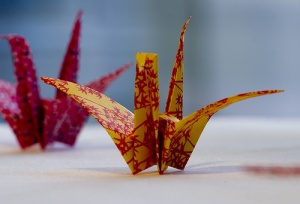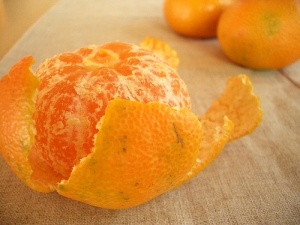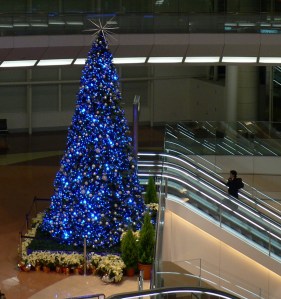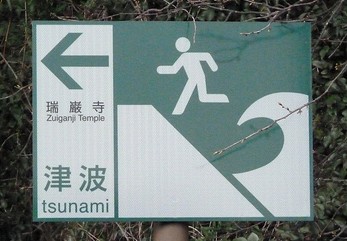by Melanie Oda (Japan) | Apr 24, 2012 | Eye on Culture, Holiday, Humor, Japan, Life Lesson, Motherhood, Parenting, World Motherhood
 I had really hoped this year would be the year.
I had really hoped this year would be the year.
The year I could put the Hina Matsuri (Girls’ Day) dolls out in the living room where we could enjoy them. It’s such a nice tradition: displaying beautifully intricate (and sickeningly expensive) dolls in traditional seven-layered kimonos for the weeks leading up to Girls’ Day on March 3rd, when the whole family pauses to pray for the health and well-being of daughters before feasting on feminine, cutesy foods, like tiny sushi and soup with delicate candy colored balls, followed by pink and green omochi (sticky, sweet rice cakes) for desert. Ladies magazines are full of hina (imperial princess) themed recipes. This year I think we’ll try the “parfait sushi,” which is sushi rice layered with eggs and other colorful ingredients in a glass so it looks like a parfait. I’m also thinking of ordering a Hina Matsuri themed ice cream cake from Baskin Robbins (known here as 31 Ice.)
Of course, the best laid plans of mice and moms often go awry. Or something like that. (more…)
If you ask Melanie Oda where she is from, she will answer "Georgia." (Unless you ask her in Japanese. Then she will say "America.") It sounds nice, and it's a one-word answer, which is what most people expect. The truth is more complex. She moved around several small towns in the south growing up. Such is life when your father is a Southern Baptist preacher of the hellfire and brimstone variety.
She came to Japan in 2000 as an assistant language teacher, and has never managed to leave. She currently resides in Yokohama, on the outskirts of Tokyo (but please don't tell anyone she described it that way! Citizens of Yokohama have a lot of pride). No one is more surprised to find her here, married to a Japanese man and with two bilingual children (aged four and seven), than herself. And possibly her mother.
You can read more about her misadventures in Asia on her blog, HamakkoMommy.
More Posts
by Melanie Oda (Japan) | Feb 13, 2012 | Culture, Japan, Motherhood, World Motherhood
 There is an old man who lives a couple of buildings down. He is in no way remarkable, really. I often see him walking his dog or riding his bike to and from the local supermarket.
There is an old man who lives a couple of buildings down. He is in no way remarkable, really. I often see him walking his dog or riding his bike to and from the local supermarket.
On Sunday afternoon, though, he transforms.
He is the Kami Shibai, Paper Theater, man. He changes from his everyday clothes, drab blues and grays, into his yukata (informal kimono) and his geta( wooden sandals) and his newsy cap. He looks as if he walked right out of the Yokohama of the 1930s, the pre-war Japan of his childhood.
He makes the rounds of the supermarket, banging his hyoushigi (bamboo blocks) that same echoing sound you hear at sumo matches or on winter’s evenings when the volunteers go around the neighborhood, reminding us of hi no youjin, caution against fire.
He distributes tickets to the children. The Paper Theater starts at four. All good children will receive a present at the end, he says.
And come four o’clock, a gaggle of youngsters have gathered in the corner of the supermarket where he has spread a swatch of carpet. (more…)
If you ask Melanie Oda where she is from, she will answer "Georgia." (Unless you ask her in Japanese. Then she will say "America.") It sounds nice, and it's a one-word answer, which is what most people expect. The truth is more complex. She moved around several small towns in the south growing up. Such is life when your father is a Southern Baptist preacher of the hellfire and brimstone variety.
She came to Japan in 2000 as an assistant language teacher, and has never managed to leave. She currently resides in Yokohama, on the outskirts of Tokyo (but please don't tell anyone she described it that way! Citizens of Yokohama have a lot of pride). No one is more surprised to find her here, married to a Japanese man and with two bilingual children (aged four and seven), than herself. And possibly her mother.
You can read more about her misadventures in Asia on her blog, HamakkoMommy.
More Posts
by Melanie Oda (Japan) | Jan 20, 2012 | Culture, Holiday, Japan, Motherhood, World Motherhood
 Ah, New Year’ Day, the one day out of the entire year when, I, along with all the other women in Japan, do not have to cook or do laundry.
Ah, New Year’ Day, the one day out of the entire year when, I, along with all the other women in Japan, do not have to cook or do laundry.
Of course, there is more to it than that, but let’s start with what’s important, right?
Tradition dictates that dirt from the old year must not enter the new one, so the last weeks of December are spent furiously cleaning and decorating the house to please the gods of the New Year. They seem to be especially fond of mikan, a kind of orange, and mocha, sticky short grained rice that has been beaten with a mallet until it is the consistency of silly putty, and most houses offer this on the family altar.
(My in-laws are Christian so they don’t have an altar, but like most Japanese they cover all the religious bases just in case and set out the mochi and mikan on top of the TV. Seems like a logical enough place for the god’s to stop, I suppose.)
On New Year’s Eve, we eat long noodles in soup. This is supposed to bring luck in the year to come. Many people visit the shrine or temple at midnight. For the next several days, one can see a steady stream of Japanese, young and old, in fur-trimmed kimono unsteadily approaching places of worship, slowed down by the traditional flip-flop type shoes they wear. This is about the only time one sees people from so many different walks of life in their traditional finery. Kimono are reserved now mostly for highly ceremonious occasions. (more…)
If you ask Melanie Oda where she is from, she will answer "Georgia." (Unless you ask her in Japanese. Then she will say "America.") It sounds nice, and it's a one-word answer, which is what most people expect. The truth is more complex. She moved around several small towns in the south growing up. Such is life when your father is a Southern Baptist preacher of the hellfire and brimstone variety.
She came to Japan in 2000 as an assistant language teacher, and has never managed to leave. She currently resides in Yokohama, on the outskirts of Tokyo (but please don't tell anyone she described it that way! Citizens of Yokohama have a lot of pride). No one is more surprised to find her here, married to a Japanese man and with two bilingual children (aged four and seven), than herself. And possibly her mother.
You can read more about her misadventures in Asia on her blog, HamakkoMommy.
More Posts
by Melanie Oda (Japan) | Dec 21, 2011 | Holiday, Japan, Motherhood, World Motherhood
 Christmas in Japan is pretty much an unadulterated Gimmee Fest. Santa is everywhere, baby Jesus? って誰?Who’s that? I like to call it Christmas, Inc.
Christmas in Japan is pretty much an unadulterated Gimmee Fest. Santa is everywhere, baby Jesus? って誰?Who’s that? I like to call it Christmas, Inc.
A good comparison would probably be the American version of Valentine’s Day. I mean, sure, there’s a religious tradition in there somewhere, but it’s been so warped that now it’s really just a chance for kids to exchange cards and yours truly to eat too much chocolate. (Valentine’s Day in Japan is totally backwards, but I’ll save that for February.)
Here most people celebrate Christmas on the evening of the 24th. They eat fried chicken and “Christmas Cake,” which is usually a strawberry and whipped cream topped vanilla sponge. Interestingly enough, Kentucky Fried Chicken (known in Japan simply as Kentucky) is strongly associated with Christmas. (more…)
If you ask Melanie Oda where she is from, she will answer "Georgia." (Unless you ask her in Japanese. Then she will say "America.") It sounds nice, and it's a one-word answer, which is what most people expect. The truth is more complex. She moved around several small towns in the south growing up. Such is life when your father is a Southern Baptist preacher of the hellfire and brimstone variety.
She came to Japan in 2000 as an assistant language teacher, and has never managed to leave. She currently resides in Yokohama, on the outskirts of Tokyo (but please don't tell anyone she described it that way! Citizens of Yokohama have a lot of pride). No one is more surprised to find her here, married to a Japanese man and with two bilingual children (aged four and seven), than herself. And possibly her mother.
You can read more about her misadventures in Asia on her blog, HamakkoMommy.
More Posts
by Melanie Oda (Japan) | Nov 30, 2011 | Being Thankful, Japan, Life Lesson, Motherhood, Natural Disaster, World Motherhood
 It’s that time of year again. New Year’s is the biggest holiday on the Japanese calendar, and as it approaches Japanese TV is full of “talent” (celebrities with no actual, recognizable talent) reflecting on the year that has passed.
It’s that time of year again. New Year’s is the biggest holiday on the Japanese calendar, and as it approaches Japanese TV is full of “talent” (celebrities with no actual, recognizable talent) reflecting on the year that has passed.
And it’s been an awful one for everyone in eastern Honshu.
So I thought I’d take a moment to reflect on the things I am thankful for thus far in 2011:
-I’m thankful we didn’t die in the earthquake on March 11. For two or three minutes there, I wasn’t so sure.
-I’m thankful my son was home with the flu that day. So many children ended up spending the night at school and daycare because their parents were unable to come home from work. Not to mention the parents who never came, or the children who never made it home from school. (more…)
If you ask Melanie Oda where she is from, she will answer "Georgia." (Unless you ask her in Japanese. Then she will say "America.") It sounds nice, and it's a one-word answer, which is what most people expect. The truth is more complex. She moved around several small towns in the south growing up. Such is life when your father is a Southern Baptist preacher of the hellfire and brimstone variety.
She came to Japan in 2000 as an assistant language teacher, and has never managed to leave. She currently resides in Yokohama, on the outskirts of Tokyo (but please don't tell anyone she described it that way! Citizens of Yokohama have a lot of pride). No one is more surprised to find her here, married to a Japanese man and with two bilingual children (aged four and seven), than herself. And possibly her mother.
You can read more about her misadventures in Asia on her blog, HamakkoMommy.
More Posts
 I had really hoped this year would be the year.
I had really hoped this year would be the year.







